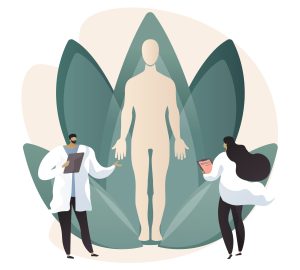[another reason to stop smoking]
Add bones to the list of body parts that benefit from smoking cessation. According to the orthopaedic surgeons of Washington University, smoking slows the healing process for fractured and broken bones and can lead to post-orthopaedic surgery complications, including pneumonia, infection and low oxygen levels. Doctors strongly recommend patients quit smoking before going under the knife.
[saving stroke victims]
University of Missouri researchers have developed a new drug therapy to stop the spread of brain bleeding in stroke patients. Published in Molecular Neurodegeneration, the findings suggest that the new medicine would allow stroke victims more time to receive essential emergency treatment. Assistant professors Dr. Zezong Gu, Ph.D., and Dr. Jiankun Cui are leading the research.
[explaining ‘chemobrain’]
Chemotherapy can disrupt brain networks and leave cancer patients with ‘mental fogginess,’ according to new research from Washington University School of Medicine. Problems with learning, attention and memory are sometimes reported following chemotherapy, and new studies show the treatment method alters brain connections in the frontal parietal control regions that guide attention and decision-making. Researchers hope the findings will lead to treatment for these cognitive impairments.
[lifesaving research]
The World Health Organization incorporated research from Washington University School of Medicine in new guidelines for treating severe acute malnutrition. The recommendations call for the nearly 20 million children younger than 5 who have severe acute malnutrition to be treated with antibiotics as well as therapeutic food because antibiotics improve recovery rates. Last year, WUSTL pediatricians Drs. Mark Manary and Indi Trehan presented their research, published in The New England Journal of Medicine, to the WHO.
[mutations to blame]
New research at Washington University School of Medicine finds one in five women with ovarian cancer has inherited genetic mutations that increase disease risk. Published in Nature Communications, the findings are significant because they were drawn from women who did not have strong family histories of the disease, and so were not likely to have been screened under current practice. The results suggest that new methods of screening are needed to ensure women without a family history of ovarian cancer don’t go undiagnosed.
By Rebecca Koenig








